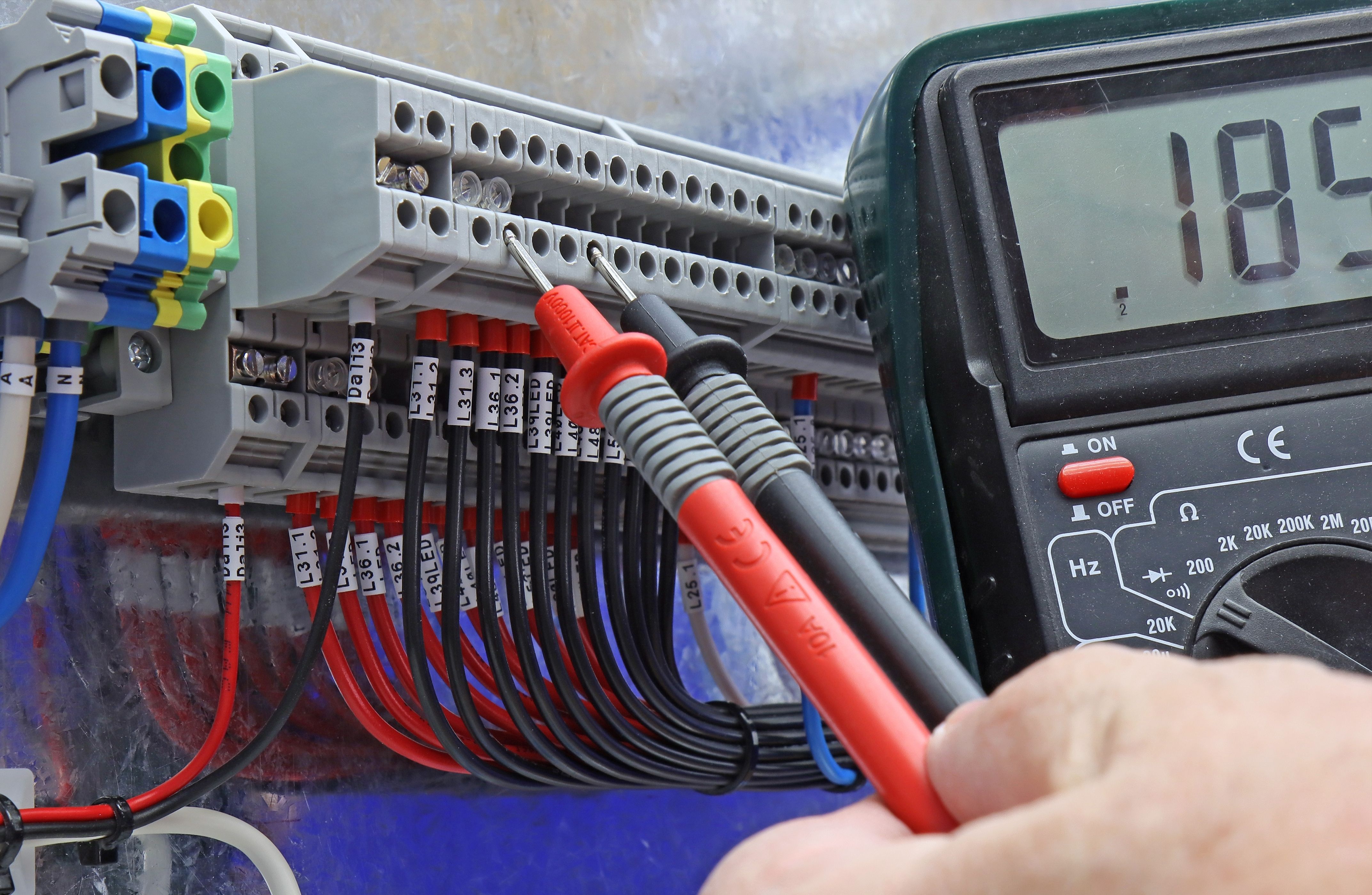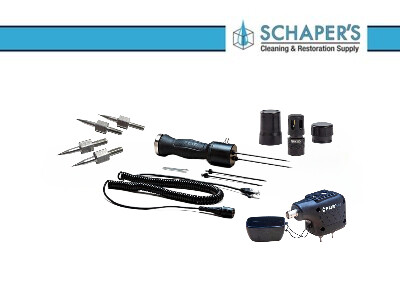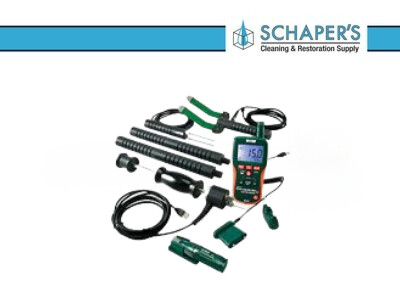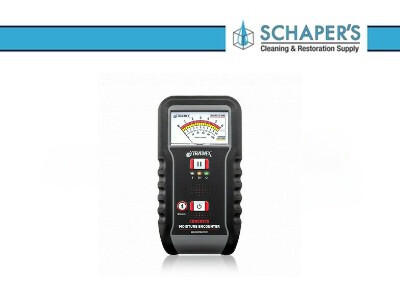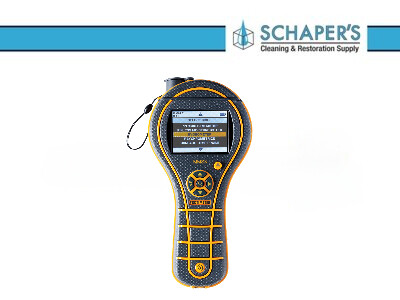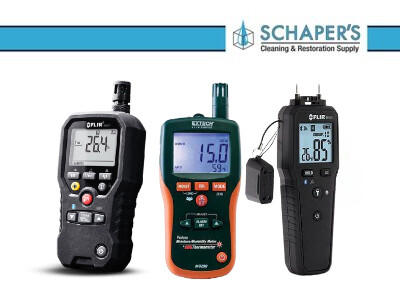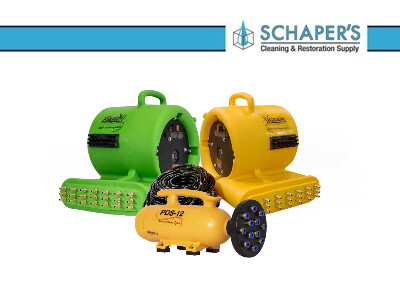
Meters & Testing Tools
Buy Meters and Testing Tools online. We deliver nationwide. For bulk supplies order online! Questions call Schaper's Supply 215-592-0812
Whether you're a beginner or a skilled professional, using meters and testing tools provides the details you need to complete a project with precision or troubleshoot an issue where the cause is not immediately clear.
Learn more about Meters and Testing Tools
Meters and Testing Tools
Meters and testing tools help you take measurements that assist with maintenance, construction, and repair projects. They are often used to troubleshoot a system or provide precise readings that reveal the condition of a specific material or system. There are meters for distance, moisture, chemical composition, electrical current, and much more.
Each meter is designed for a specific purpose or a common range of activities where testing, detection, and readings are useful.
Types of Meters & Testing Tools
There are many different types of meters and testing tools depending on the project you are working on. Electrical projects benefit from one or more electrical meters, while construction often requires meters like distance detection and moisture testing. Certain projects like aquatics or gardening may require chemical or humidity sensors. There are also a number of specialty meters and testing tools for very specific applications.
Electrical Meters
Electrical meters help you confirm the presence of voltage in a circuit. Some have additional features like precise voltage detection or the ability to test and trip GFCI outlets. Each type of electrical meter is useful for different projects and situations.
Multimeters:
- Multimeters are versatile and precise. They have different settings to detect AC and DC voltage, resistance, continuity, capacitance, and frequency.
- Multimeters are larger handheld box meters with an internal battery. They connect via two probes or alligator clips (often interchangeable)
- You will need to learn how to use and read a multimeter
Voltage Tester
- "Wiggle" tester used to verify voltage in an outlet or circuit using two probes and vibration or beeping to indicate current. This is an inaccurate but useful measurement device.
- Can be used to trip/test GFCI outlets
Clamp Meters
- An alternative to a multimeter with a large clamp to grip wire conductors. Provides a digital reading.
Plug-In Circuit Analyzer
- Plugs directly into an outlet that indicates voltage and circuit results through blinking lights, with no internal battery.
- Learn the light patterns to get a reading.
Continuity Tester
- Continuity testers are used on a circuit that is turned off. It has an internal battery that sends current along a switched-off circuit.
- Place both probes along a wire or at two points in a system. There will be a light and/or beep if current can pass through.
Non-Contact Voltage Tester
- Indicates the presence of electrical current nearby. No direct electrical contact is needed, but it does not provide a precise measurement.
Neon Voltage Tester
- Simple current detection that works without an internal battery. Connect the two leads, and a neon light will illuminate if there is a current.
Wand Voltage Tester
- A precise proximity tester that uses an electrostatic wand to give a digital voltage reading.
Combo Meters
Combo meters are handy devices that can test more than one thing at once. They are often popular in applications like gardening, water quality monitoring, or automotive testing. For example, water quality meters can test EC, TDC, pH, and temperature. Each combo meter is unique to the desired application. They are designed to be used in situations where multiple readings from the same source are useful.
Hygrometers
Hygrometers measure humidity. You will often come across thermometers/hygrometers which help you identify the temperature and humidity of a room or outdoor area. Hygrometers are used for personal comfort, gardening, and other situations where you want to control the humidity in an environment.
Moisture Meters
Moisture metres measure the percentage of water held in a material. They are great for calculating a curing or drying process, and are often used to assess mold risk and water damage remediation as well. Moisture meters can be used on wood, drywall, concrete, and other substances whether they have been saturated with water or need to dry out.
Concrete & Specialty Meters
Concrete meters measure the moisture of concrete to identify moisture-related issues that might cause damage. Concrete is porous and will form cracks or depressions over time in response to moisture, so these meters help to address those common problems.
Specialty meters address "everything else" where a meter might be useful. Types of specialty meters include:
- Distance meters (digital tape measure)
- Datalogger (diverse applications)
- ATP monitors (cleanliness)
- Borescope (inspection camera)
- Differential pressure manometer (pressure)
Factors to Consider When Choosing A Meter
The right meter depends on the needs of your project. If you do electrical work, a multimeter is always useful, but less precise proximity and probe-type testers can streamline projects that don't require precise readings. Choose testers that align with the materials you work with and the level of precision you require to achieve your goals.
Image Credit: nelikdulatov / Shutterstock
